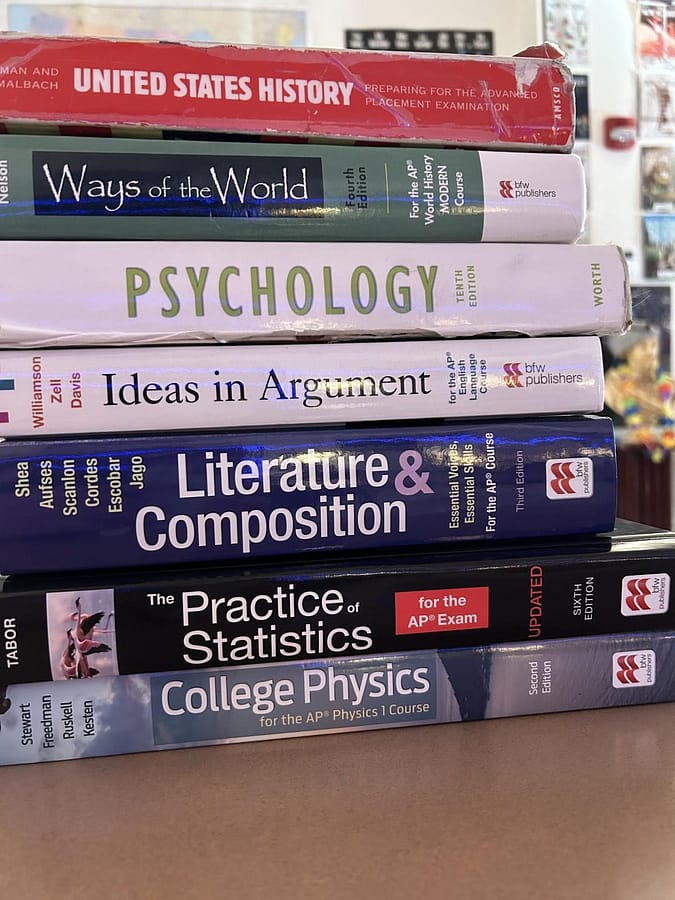Is AP Opportunity Being Counted Against You?
Just a sampling of what you may have to fit into your backpack at DHS.
Within the last month, a DHS senior applied to a college admission office that had a very unique perspective on Advanced Placement (AP) classes. This university claimed that most colleges were taking APs as a percent of total APs offered at that high school. That would imply that the more APs a student has, the worse off a student would be when applying to schools. If a school only offers two AP courses, and a student took those two, it would be seen as a student who took 100% of AP classes. By the same token, if a school had 25 courses (such as DHS) and a student took seven, that would mean this student only took 28% of AP classes, and that would be interpreted as worse to a college.
To see if this was truly the case, Assistant Principal Rachel Chavier and Principal Ryan Shea graciously agreed to talk to me about these claims and about AP offerings at DHS. The administration, upon hearing this student’s claims, immediately went into action, looking into offering courses every other year, and calling colleges to confirm.
After a thorough assessment of the situation, Mr. Shea said, “All universities said no. They look at your portfolio course offerings and look at the overall rigor. No straight university has said it’s based on the percentage.”
The college of this admission office in question has not gotten back to the school, but in all likelihood this is more likely a singular case, or a communication failure between the student and the admission office.
Ms. Chavier said, “I reached out to a contact through Mass Insight. The data [she is] familiar with does indicate college admissions reps do consider the strength and rigor of a district’s curriculum as a means of measuring opportunities for students. [However, she has] not come across anything that suggests a wide range of AP courses hurt a student’s choices. In [her] experience, districts that offer a variety of college-level courses are recognized for their strength of curriculum, thereby giving all students a good chance for admission to competitive schools.”
Mass Insight has been a valuable tool to DHS in the past, offering mock-exams and summer programs for AP. As a program that specializes in college classes, it is notable they never came across a college that handles AP evaluation as a percent, and because DHS does offer a wide range of AP classes, students have better chances in admissions, not worse.
According to College Vine, most competitive colleges calculate a student’s Academic Index, a tool that uses a student’s class rank, GPA and SAT/ACT scores to evaluate a student, never listing a percent of APs offered as a consideration.
There is so much here for every single kid, but [as for] the APs, I believe every student in this school could take one and be successful, as long as it’s an area where they are passionate.
— Associate Principal Rachel Chavier
After this brief scare to Advanced Placement offerings, students can look forward to new classes being offered next year: AP Music Theory and AP Pre-Calc.
“There is so much here for every single kid, but [as for] the APs, I believe every student in this school could take one and be successful, as long as it’s an area where they are passionate,” said Ms. Chavier.














